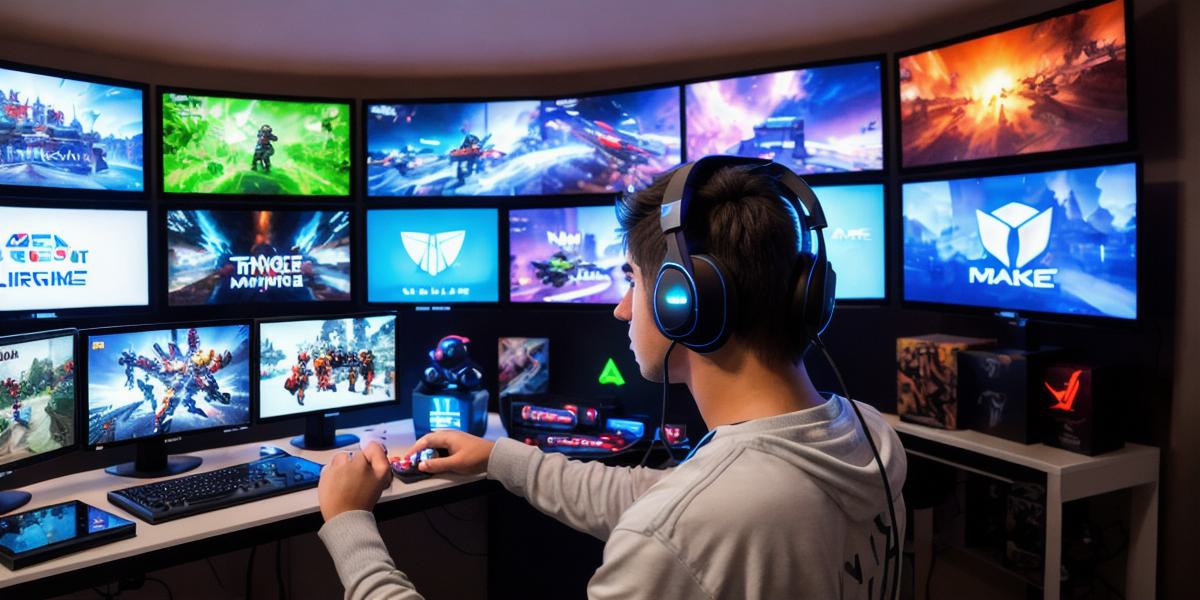As a budding game developer, landing an internship is a crucial step towards launching your career. Not only does it provide you with valuable hands-on experience, but it also gives you the chance to network and learn from experienced professionals in the industry. However, with so many applicants vying for these positions, standing out can be challenging. In this article, we will explore some of the best tips and strategies for landing a game development internship.

- Identify Your Strengths and Weaknesses
Before applying for an internship, it’s essential to identify your strengths and weaknesses as a game developer. This will help you tailor your application to highlight your skills and areas of expertise. For example, if you have experience in coding and programming, make sure to mention this in your resume and cover letter. On the other hand, if you need to improve in certain areas, such as design or art, consider taking online courses or workshops to enhance your skills.
- Build a Strong Portfolio
Your portfolio is one of the most crucial elements of your application. It showcases your work and demonstrates your abilities to potential employers. When building your portfolio, make sure to include a variety of projects that showcase your skills in different areas of game development. This could include 2D or 3D art, level design, coding, or animation. The more diverse your portfolio, the better chance you have of impressing potential employers.
- Network and Connect with Industry Professionals
Networking is an essential part of landing any job, including game development internships. Attend industry events, join online communities, and connect with professionals in the field on social media platforms like LinkedIn. This will help you gain exposure to potential employers and learn more about the industry. Additionally, don’t be afraid to reach out to game developers for informational interviews or advice on how to improve your skills.
- Customize Your Application
When applying for a game development internship, make sure to customize your application to fit the specific requirements of the job posting. Read the job description carefully and highlight any relevant skills or experience you have. This will demonstrate that you have taken the time to research the position and are serious about landing the internship.
- Be Proactive and Persistent
Landing a game development internship can be a lengthy and challenging process. Don’t give up if you don’t hear back from your first application. Instead, use this as an opportunity to learn from your mistakes and improve your skills. Additionally, be proactive by reaching out to potential employers and expressing your interest in the position even if there isn’t an active job posting. This shows that you are serious about pursuing a career in game development.
Case Study: The Successful Game Development Intern
John was a recent graduate with a degree in computer science, but he had always been passionate about game development. He knew that landing an internship would be crucial to launching his career, so he spent months researching and customizing his application. He also built a strong portfolio showcasing his skills in coding and level design.
After applying to several game development companies, John finally landed an internship at a well-known studio. During his time there, he worked on various projects alongside experienced professionals and gained valuable hands-on experience. He also took advantage of the opportunity to network with other interns and learn more about the industry.
At the end of his internship, John was offered a full-time position at the studio. This was a dream come true for him, and he knew that his hard work and persistence had paid off.
The Science Behind Landing a Game Development Internship
While there is no one-size-fits-all approach to landing an internship, research has shown that certain strategies are more effective than others. For example, a study by Glassdoor found that personal connections and referrals were the most effective ways to land a job in the tech industry, including game development.
